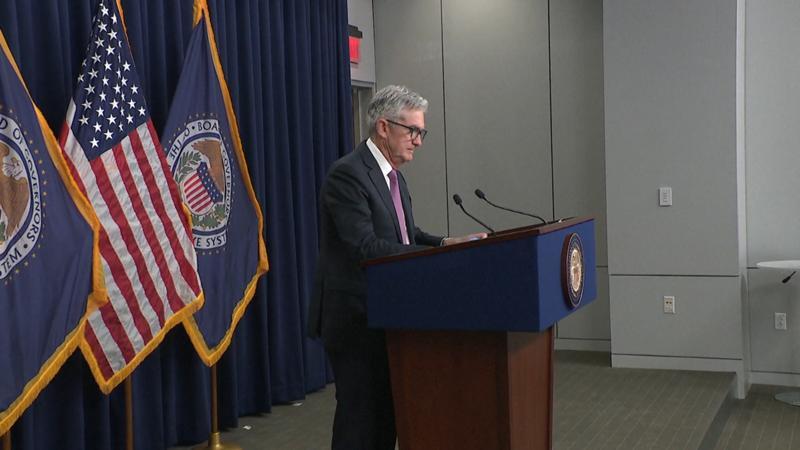Posted on October 3, 2020

Wednesday, the Federal Reserve raised interest rates another .75 percent, but many remain unclear about how the “fed” works, how interest rates impact inflation, and whether these higher interest rates are here to stay.
Luckily, understanding how the complex Federal Reserve lending system works is far less important than understanding the impact of raising and lowering interest rates.
When the fed raises interest rates, banks raise their own interest rates on home loans, car loans, and credit cards.
With higher rates, people tend to spend less.
Less spending lowers demand… which increases supply… which drives down prices.
Driving down prices in response to the highest inflation rate in 40 years is exactly why the fed took action again this week.
“Restoring price stability is just something that we have to do. There isn’t an option to fail to do that,” explained Federal Reserve Chairman Jerome Powell.
Financial Advisor Brad Harvey of Harvey Investment Management in downtown Colorado Springs isn’t surprised by the rate hikes.
In fact, he expected it to happen sooner.
“In my opinion, the government was a little behind the ball. We saw inflation coming in, and we saw supply chain problems, which increased inflation, and they didn’t raise interest rates very quickly. Now I think they’re playing catchup. So they’re increasing them at a much greater magnitude with a higher frequency, trying to catch up with some of those supply chain problems that created this inflation imbalance,” he explained.
Following Wednesday’s increase, interest rates are at the highest level since 2008, during the last recession.
Some major retailers, including Walmart, have already reported a slowdown in sales due to tightening consumer budgets.
However, the biggest impact so far in the Pikes Peak region is being felt in the housing market.
The higher interest rates mean someone buying a house today would pay hundreds more per month than a year ago for the exact same house, forcing many buyers to reconsider.
Data from the Pikes Peak Association of Realtors shows home sales in June were down almost six percent.
PPAR’s data also shows that the amount of homes on the market in June was almost triple what it was a year earlier.
Jay Garvens of Churchill Mortgage, who hosts a weekly show on real estate and home loans on KRDO Newsradio, believes despite the higher interest rates, it’s actually a buyer’s market because of the incentives that buyers haven’t had here in years.
“You can now make an offer on a house and get asking price or $10,000 below. You can have an inspection. You can have an open house,” he says. “You can have a dialogue with the seller about what their strengths in the house and they’re going to ask what are your strengths as a buyer.”
Garvens also believes the cost of living in Colorado Springs may never be any lower than it is now.
“The cost of living in Colorado Springs will never go down. And if you’re having a hard time with debt, and if you’re having a hard time buying a house, you may consider moving to a more affordable community. It’s what the people in California are doing. It’s what the people in Denver are doing. They’re moving here. But I would tell people if you have your debt under control, and you need a house to buy, now is the time to buy.”
It’s possible interest rates could return to those historic lows in the next few months, or the next few years, but Harvey believes that forecast is very cloudy.
“If we keep having inflation at 8, 9, or even 10 percent, they’re going to have to keep increasing those rates in order to slow down that inflation,” he says. “If they get where they want to be, then absolutely they’ll want to stimulate the economy and bring those interest rates down rapidly.”
Harvey also pointed out another impact from the higher rates that few people are talking about.
The higher rates are making the U.S. dollar stronger.
Although that sounds like good news, this means people outside the U.S. don’t have the buying power they used to have, so they likely won’t travel to the U.S. as often or buy as many products from U.S. companies as before.
The post Experts explain how interest rates control economy, housing market appeared first on KRDO.
